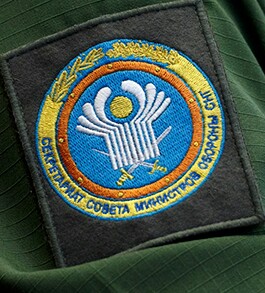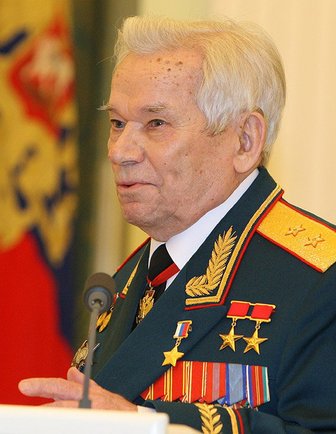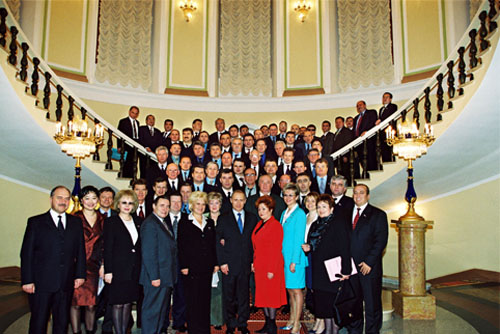|
Sergey Shoigu
Sergei Kuzhugetovich Shoigu, ; tyv, đíđÁĐÇđ│đÁđ╣ đÜĎ»đÂĎ»đ│đÁĐé đżđ│đ╗Đâ đĘđżđ╣đ│Đâ, translit=Sergey Kyzhyget oglu Shoygu, . (russian: đíđÁĐÇđ│đÁđ╣ đÜĐâđÂĐâđ│đÁĐéđżđ▓đŞĐç đĘđżđ╣đ│Đâ; born 21 May 1955) is a Russian politician who has served as the minister of defence of Russia since 2012. Shoigu has served as the chairman of the Council of Ministers of Defense of the Commonwealth of Independent States since 2012. Shoigu was the minister of emergency situations from 1991 to 2012. He briefly served as the governor of Moscow Oblast in 2012. A close confidant and ally of Vladimir Putin, Shoigu belongs to the ''siloviki'' of Putin's inner circle. Early life and education Shoigu was born on 21 May 1955 in Chadan in the remote and impoverished Tuvan Autonomous Oblast to an ethnic Tuvan father, newspaper editor (1921ÔÇô2010) and a Ukrainian-born Russian mother, Alexandra Yakovlevna Shoigu (1924ÔÇô2011). Alexandra Shoigu grew up in the Donbas town of Stakhanov and had traumat ... [...More Info...] [...Related Items...] OR: [Wikipedia] [Google] [Baidu] |
Council Of Ministers Of Defense Of The CIS
The Council of Ministers of Defense of the CIS () is a working body in the Commonwealth of Independent States responsible for military policy of the CIS. It coordinates military cooperation of the CIS member states, and develops military and defense policy of the CIS. Chairmen With the exception of Colonel General Kostyantyn Morozov of the Ministry of Defence of Ukraine, the post of Chairman of the Council of Ministers of the CIS has historically been concurrent with the post of Minister of Defence of the Russian Federation. * Kostyantyn Morozov (22 December 1991-18 May 1992) * Pavel Grachev (18 May 1992-17 June 1996) * Igor Rodionov (17 July 1996-23 May 1997) * Igor Sergeyev (23 May 1997-28 March 2001) * Sergei Ivanov (28 March 2001-15 February 2007) * Anatoliy Serdyukov (15 February 2007-7 May 2012) * Sergei Shoigu (11 December 2012-''Present'') Current members Subordinates * Air Defense Coordination Committee **Joint CIS Air Defense System *Coordinating Committ ... [...More Info...] [...Related Items...] OR: [Wikipedia] [Google] [Baidu] |
Hero Of The Russian Federation
Hero of the Russian Federation (russian: đôđÁĐÇđżđ╣ đáđżĐüĐüđŞđ╣Đüđ║đżđ╣ đĄđÁđ┤đÁĐÇđ░ĐćđŞđŞ, Geroy Rossiyskoy Federatsii), also unofficially Hero of Russia (russian: link=no, đôđÁĐÇđżđ╣ đáđżĐüĐüđŞđŞ, Geroy Rossii), is the highest honorary title of the Russian Federation. The title comes with a Gold Star medal, an insignia of honour that identifies recipients. The title is awarded to persons for "service to the Russian state and nation, usually connected with a heroic feat of valour". The title is bestowed by decree of the president of the Russian Federation. Russian citizenship or being in the service of the Russian state is not obligatory. The title was established in 1992 and, , was awarded more than 970 times, of which more than 440 were posthumously. History The title "Hero of Russia" is a successor to Hero of the Soviet Union (russian: link=no, đôđÁĐÇđżđ╣ đíđżđ▓đÁĐéĐüđ║đżđ│đż đíđżĐÄđĚđ░), which was established by Resolution of the Central Executive Committee of the Sovi ... [...More Info...] [...Related Items...] OR: [Wikipedia] [Google] [Baidu] |
Unity (Russian Political Party)
Unity ( rus, đĽđ┤đŞ╠üđŻĐüĐéđ▓đż, Yedinstvo) was a Russian political party that was created in September 1999 and registered on 15 October 1999, supported by RussiaÔÇÖs President Boris Yeltsin, Prime Minister Vladimir Putin and dozens of Russian governors to counter the threat which the Kremlin perceived from the Fatherland-All Russia alliance. It was also unofficially dubbed "MedvedÔÇÖ" (the bear) or "Medvedi" (bears), as "MeDvEd" was an acronym of its full name (Mezhregionalnoye Dvizheniye "Edinstvo"; Interregional movement "Unity"). Later the party adopted a brown bear for its symbol. History The rise of Unity was meteoric given the short time period it had to create an identity, plan its campaign strategy and carry out its ambitious objectives. The establishment of the movement followed a declaration signed by 39 governors expressing their dissatisfaction with the political battles being fought in Russia. The initial meeting of these governors to form a new electoral movement ... [...More Info...] [...Related Items...] OR: [Wikipedia] [Google] [Baidu] |
Vladimir Puchkov
Vladimir Andreyevich Puchkov (russian: link=no, đĺđ╗đ░đ┤đŞđ╝đŞĐÇ đÉđŻđ┤ĐÇđÁđÁđ▓đŞĐç đčĐâĐçđ║đżđ▓; born January 1, 1959, in Novinka at Volgograd Oblast) is a Russian politician who served as Minister of Emergency Situations from May 2012 to May 2018. He holds the military rank of General Lieutenant. Biography Education * 1979 ÔÇö graduated from Tyumen High Military Engineering Command School (đóĐÄđ╝đÁđŻĐüđ║đżđÁ đ▓ĐőĐüĐłđÁđÁ đ▓đżđÁđŻđŻđż-đŞđŻđÂđÁđŻđÁĐÇđŻđżđÁ đ║đżđ╝đ░đŻđ┤đŻđżđÁ ĐâĐçđŞđ╗đŞĐëđÁ) * 1988 ÔÇö attended The Kuybishev Military Engineering Academy (đĺđżđÁđŻđŻđż-đŞđŻđÂđÁđŻđÁĐÇđŻĐâĐÄ đ░đ║đ░đ┤đÁđ╝đŞĐÄ đŞđ╝. đĺ. đĺ. đÜĐâđ╣đ▒ĐőĐłđÁđ▓đ░). Which he graduated in 1991 with specialty in Command Staff of Civil Defense. * 2000 ÔÇö graduated from the Russian Academy for State Service under the President of Russia, with specialty as Manager for Municipal Management. Career *1979-1983 ÔÇö Served in the Engineering Troops in Far East Military District of the Soviet Army. *1983-1986 ÔÇ ... [...More Info...] [...Related Items...] OR: [Wikipedia] [Google] [Baidu] |
Viktor Zubkov
Viktor Alekseyevich Zubkov ( rus, đĺđŞ╠üđ║ĐéđżĐÇ đÉđ╗đÁđ║ĐüđÁ╠üđÁđ▓đŞĐç đŚĐâđ▒đ║đż╠üđ▓, p=╦łv╩▓ikt╔Ör ╔Él╩▓╔¬╦łks╩▓ej╔¬v╩▓╔¬t╔Ľ z╩Őp╦łkof; born 15 September 1941) is a Russian civil servant, politician and businessman who served as the 36th Prime Minister of Russia from September 2007 to May 2008. He was Vladimir Putin's First Deputy Prime Minister during the presidency of Dmitry Medvedev. A civil servant who held various positions in the Leningrad Oblast under the Soviet regime, he later served as advisor to Cabinet Ministers. Zubkov was a financial crime investigator until he was nominated on 12 September 2007 by President Vladimir Putin to replace Prime Minister Mikhail Fradkov, who had resigned earlier that day. The nomination was approved in the Duma on 14 September 2007. On 7 May 2008 Zubkov's cabinet was automatically dismissed. This procedure, following an inauguration of the President of Russia is required by the Russian Constitution. After Putin became Prime Minister ... [...More Info...] [...Related Items...] OR: [Wikipedia] [Google] [Baidu] |
Mikhail Fradkov
Mikhail Yefimovich Fradkov ( rus, đťđŞĐůđ░đŞ╠üđ╗ đĽĐäđŞ╠üđ╝đżđ▓đŞĐç đĄĐÇđ░đ┤đ║đż╠üđ▓, p=m╩▓╔¬x╔É╦łil j╔¬╦łf╩▓im╔Öv╩▓╔¬t╔Ľ fr╔Ét╦łkof; born 1 September 1950) is a Russian politician who served as Prime Minister of Russia from 2004 to 2007. An Independent, he was the longest serving director of Russia's Foreign Intelligence Service from 2007 to 2016. Since 4 January 2017, Fradkov has been Director of the Russian Institute for Strategic Studies. The cabinet of Fradkov was the first government in the history of Russia that voluntarily resigned accordance to part 1 of Article 117 of the constitution. Early life Fradkov was born near Samara to a family of Jewish origin on his father's side. He studied at both the Moscow Machine Tool Design (ĐüĐéđ░đŻđ║đżđŞđŻĐüĐéĐÇĐâđ╝đÁđŻĐéđ░đ╗ĐîđŻĐőđ╣) Institute (graduated 1972) and the Foreign Trade Academy (graduated 1981). In 1973, he was posted to the economic section of the Soviet Union's embassy in India, where he remained for two years. He la ... [...More Info...] [...Related Items...] OR: [Wikipedia] [Google] [Baidu] |
Viktor Khristenko
Viktor Borisovich Khristenko (russian: đĺđŞđ║ĐéđżĐÇ đĹđżĐÇđŞĐüđżđ▓đŞĐç đąĐÇđŞĐüĐéđÁđŻđ║đż; born 28 August 1957) is a Russian politician who was chairman of the board of the Eurasian Economic Commission from 1 February 2012 to 1 February 2016. He was First Deputy Prime Minister of Russia from 31 May 1999 to 10 January 2000 and Minister of Industry from 9 March 2004 to 31 January 2012. Early life and education Khristenko was born in Chelyabinsk on 28 August 1957. Kristenko graduated in 1979 from Chelyabinsk Mechanical Engineering Institute with a specialization in construction management and Economics. In 1983, he completed his Candidate of Sciences in Management at the Moscow Institute of Management. Khristenko has acknowledged the influence of Georgy Shchedrovitsky in his approach to management. He contributed three chapters to ''Methodological School of Management'', a book based on the work of Shchedrovitsky's Moscow Methodological Circle and its successors. Career Ministeri ... [...More Info...] [...Related Items...] OR: [Wikipedia] [Google] [Baidu] |
Sergei Stepashin
Sergei Vadimovich Stepashin (russian: đíđÁĐÇđ│đÁđ╣ đĺđ░đ┤đŞđ╝đżđ▓đŞĐç đíĐéđÁđ┐đ░ĐłđŞđŻ; born 2 March 1952) is a Russian politician who briefly served as Prime Minister of Russia in 1999. Prior to this he had been appointed as federal security minister by President Boris Yeltsin in 1994, a position from which he resigned in 1995 as a consequence of the Budyonnovsk hospital hostage crisis. Subsequent to his tenure as Prime Minister he served as Chairman of the Accounts Chamber of Russia from 2000 until 2013. Early life and education Stepashin was born in Port-Arthur, Kwantung Leased Territory, Kvantun Oblast, USSR (now L├╝shunkou, L├╝shunkou, China) on 2 March 1952. He graduated from the Higher Political School of the USSR Ministry of the Interior (1973), in 1981 from the Lenin Military-Political Academy, and in 2002 from the Finance University under the Government of the Russian Federation, Finance Academy. He is a Doctor of Law, Professor, and has a rank of the State Advisor on ... [...More Info...] [...Related Items...] OR: [Wikipedia] [Google] [Baidu] |
Yevgeny Primakov
Yevgeny Maksimovich Primakov (29 October 1929 ÔÇô 26 June 2015) was a Russian politician and diplomat who served as Prime Minister of Russia from 1998 to 1999. During his long career, he also served as Foreign Minister, Speaker of the Supreme Soviet of the Soviet Union, and chief of the intelligence service. Primakov was an academician (Arabist) and a member of the Presidium of the Russian Academy of Sciences. Personal life Primakov was born in Kyiv in the Ukrainian SSR, and grew up in Tbilisi in the Georgian SSR. His father was Jewish and his family name was originally "Finkelstein", but was later changed to "Primakov". His father had been imprisoned in the Gulag during the Stalinist purges. His mother was Anna Yakovlevna Primakova, who worked as an obstetrician and was a cousin of the famous physiologist . He was educated at the Moscow Institute of Oriental Studies, graduating in 1953, and did postgraduate work at Moscow State University. His grandson is Yevgeny Primakov ... [...More Info...] [...Related Items...] OR: [Wikipedia] [Google] [Baidu] |
Sergey Kiriyenko
Sergey Vladilenovich Kiriyenko (''n├ę'' ''Izraitel''; russian: đíđÁĐÇđ│đÁ╠üđ╣ đĺđ╗đ░đ┤đŞđ╗đÁ╠üđŻđżđ▓đŞĐç đÜđŞĐÇđŞđÁ╠üđŻđ║đż; born 26 July 1962) is a Russian politician who has served as First Deputy Chief of Staff of the Presidential Administration of Russia since 5 October 2016. Previously he served as the 30th Prime Minister of Russia from 23 March to 23 August 1998 under President Boris Yeltsin. Between 2005 and 2016 he was the head of Rosatom, the state nuclear energy corporation. Kiriyenko was the youngest Prime Minister of Russia, taking the position at age 35. Early life Sergei Kiriyenko's grandfather, Yakov Israitel, made his name as a devoted communist and member of the Cheka,Victor YasmanRussia: Sergei Kiriyenko -- Russia's 'Kinder Surprise'Radio Free Europe/Radio Liberty. 15 February 2006. and Vladimir Lenin awarded him with an inscribed pistol for his good service to the Communist Party of the Soviet Union. Sergei Kiriyenko, son of a Jewish father, [...More Info...] [...Related Items...] OR: [Wikipedia] [Google] [Baidu] |
Viktor Chernomyrdin
Viktor Stepanovich Chernomyrdin (russian: đĺđŞ╠üđ║ĐéđżĐÇ đíĐéđÁđ┐đ░╠üđŻđżđ▓đŞĐç đžđÁĐÇđŻđżđ╝Đő╠üĐÇđ┤đŞđŻ, ; 9 April 19383 November 2010) was a Soviet and Russian politician and businessman. He was the Minister of Gas Industry of the Soviet Union (13 February 1985 ÔÇô 17 July 1989), after which he became first chairman of Gazprom energy company and the second-longest-serving Prime Minister of Russia (1992ÔÇô1998) based on consecutive years. He was a key figure in Russian politics in the 1990s and a participant in the transition from a planned to a market economy. From 2001 to 2009, he was Russia's ambassador to Ukraine. After that, he was designated as a presidential adviser. Chernomyrdin was known in Russia and Russian-speaking countries for his language style, which contained numerous malapropisms and syntactic errors. Many of his sayings became aphorisms and idioms in the Russian language, one example being the expression "We wanted the best, but it turned out like always." ... [...More Info...] [...Related Items...] OR: [Wikipedia] [Google] [Baidu] |







